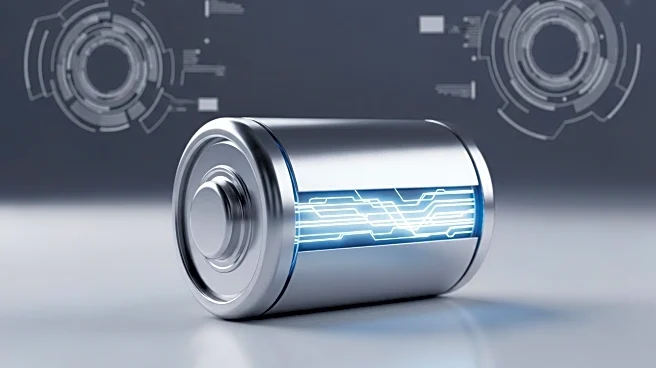What's Happening?
Lithium Argentina's Cauchari-Olaroz project, located in northern Argentina, is set to significantly increase its production of lithium, a key component in electric car batteries. The project aims to produce 85,000 metric tons annually by 2029, more than tripling its output from last year. The site is part of the Lithium Triangle, which includes Argentina, Chile, and Bolivia, and is developed by Lithium Argentina in partnership with China's Ganfeng Lithium. Currently, 80% of the production is exported to China, with the remainder going to Thailand. A new joint venture, Pozuelos-Pastos Grandes, has been announced to consolidate three projects in Salta province, aiming for a production capacity of 150,000 tons annually. Both projects will apply for Argentina's Large Investment Incentive Regime, which offers tax benefits for investments over $200 million.
Why It's Important?
The expansion of lithium production at Cauchari-Olaroz is crucial for meeting the growing global demand for electric vehicle batteries. As the world shifts towards renewable energy and electric transportation, lithium's role becomes increasingly significant. The project's success could bolster Argentina's position as a major player in the lithium market, attracting foreign investment and boosting the local economy. The involvement of international partners like Ganfeng Lithium highlights the global interest in securing lithium resources. Additionally, the Large Investment Incentive Regime could stimulate further economic growth by attracting substantial foreign currency inflows.
What's Next?
Lithium Argentina plans to begin construction on the Pozuelos-Pastos Grandes project in 2026, following the completion of a feasibility study. The application to Argentina's Large Investment Incentive Regime is expected by the end of the year, potentially providing tax benefits and other advantages. The success of these initiatives could lead to increased production capacity and further consolidation of lithium projects in the region. Stakeholders, including international investors and local governments, will likely monitor the developments closely, as they could impact global lithium supply chains and market dynamics.
Beyond the Headlines
The expansion of lithium production in Argentina may have broader implications for environmental and social policies. As demand for lithium increases, concerns about sustainable mining practices and the impact on local communities could arise. The collaboration between international companies and local entities may also influence regulatory frameworks and labor practices in the region. Long-term, the growth of the lithium industry could drive technological advancements and innovation in battery production, potentially reducing costs and improving efficiency.









